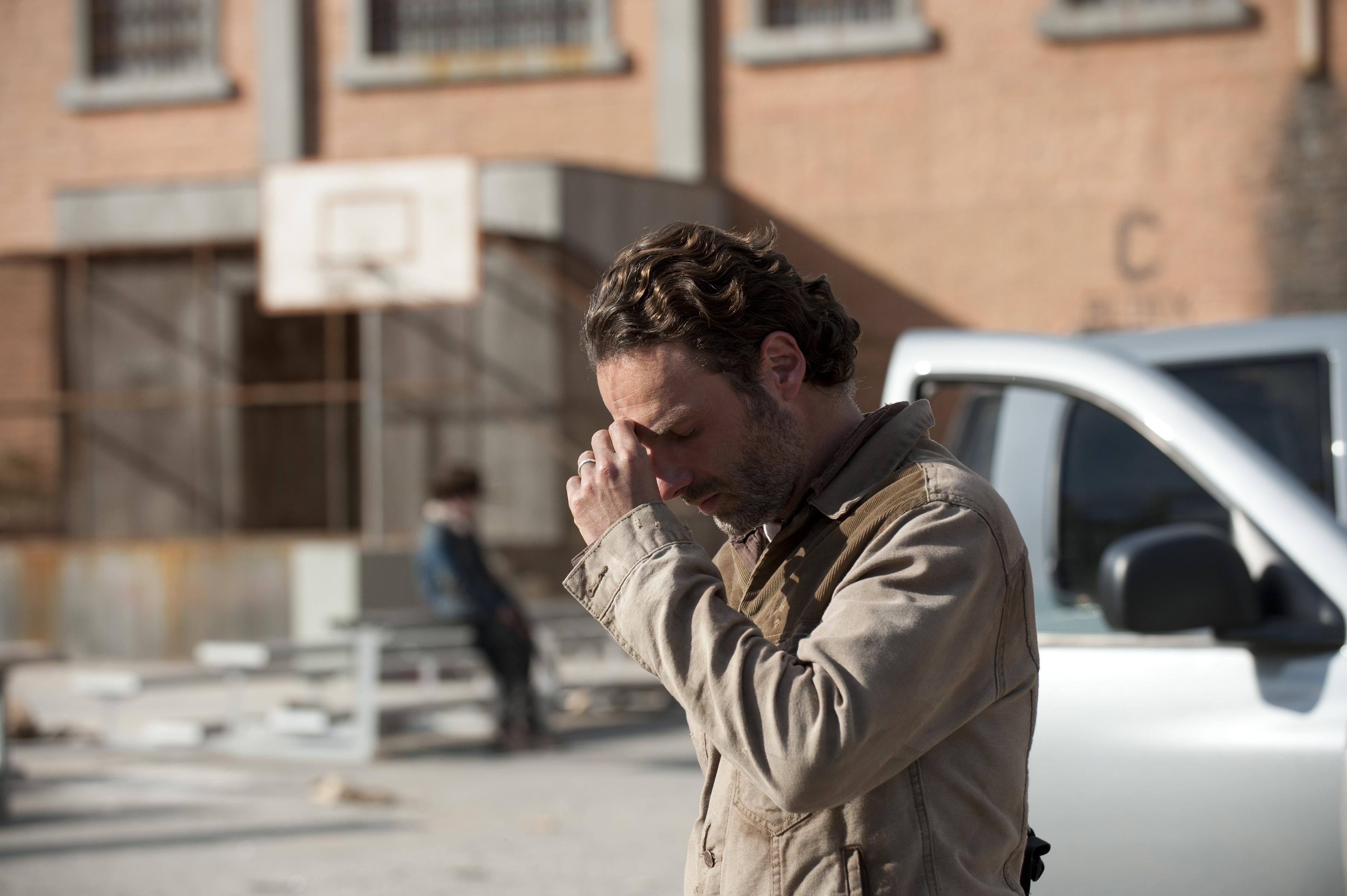As we put Season 3 of The Walking Dead into the ground, let’s take a moment to remember its predecessor. Season 2 plodded as slowly as a Lori-fed walker. Pick a scene, any scene: Most likely, you’ll be watching bored characters milling about Hershel’s farm, squabbling over barns and missing children and babies of unknown heredity.
Season 3, on the other hand, ran like the zombies in the trailer for World War Z. And, ironically, that’s attributable to the least terrifying zombies ever, as walkers were demoted from primary threat to occasional complication. The monsters of this season were instead the survivors themselves. The Walking Dead had dipped its toe into “man vs. man” conflicts before, but the third season took the plunge. Unlike other hostile survivor groups, Woodbury posed a threat to the Grimes group that was neither ambiguous, fleeting, or hypothetical. It was an existential threat that knocked, quite literally, on their front door.
And then Season 3 squandered the opportunity it created. Maybe the source material limited it, but The Walking Dead could have given us the drama of two well-intentioned groups struggling for resources and security. The Woodbury vs. prison fight instead devolved quickly into the standard struggle of “good guys vs. murderous madman,” a conflict that unfolds predictably in every piece of fiction in which it appears: The madman becomes self-defeating. All it took is one not particularly brilliant ruse from the Grimes group to make the Governor snap and kill the very people he needed.
The Walking Dead has repeatedly set up conflicts based on the difference between “deserved deaths” and “justified deaths.” At one point or another one or many characters find themselves holding somebody’s life in their hands and trying to figure out what to do with it: life or death? In all these cases, characters act as judge, jury, and executioner and weigh the individual’s guilt with the threat he/she poses. Mistakes in this calculation can lead to terrible consequences. Andrea erred on the side of life, letting the Governor go and thereby spelling her own doom. Rick also erred on the side of life, killing Lori. Lori died, so Carl now errs on the side of death.
I imagined the conflict with Woodbury would be the same conflict, writ large. The Woodburians were a bunch of scared people who probably don’t “deserve” to die, but we can’t blame the Grimes gang for taking the aggressors out to ensure their own survival. Once the Grimes group had turned the tables on them, they faced a big decision—does Rick stay true to his faith, and offer life, or does he remember Lori and dictate death?
In killing most of the attackers, the Governor made the decision for him. If there’s any trace of the conflict remaining, it’s whether Rick should bring under his wing all of the harmless people who weren’t fit for the Governor’s army anyway. The decision was made so easily that it doesn’t even come close to illustrating some sort of evolution in Rick. If this final test was supposed to show that Rick’s faith endures, it was the weakest test of the whole season.
I don’t see how it could have turned out any other way, though. It’s the only reasonable resolution to a conflict that is itself a copout. The resolution reveals the flaws of the prison-Woodbury war itself: It rests entirely on the Woodburians’ ignorance. True, the harsh realities of the zombie apocalypse allows the Governor to easily manipulate them, but the whole conflict boils down not to scarcity or irreconcilable philosophies but a misunderstanding whose only satisfying conclusion can be a series of events in which the two factions finally understand each other.
Still, I can’t say the season finale and the season as a whole weren’t vastly entertaining. By the midseason finale, the show was better in every possible way than it used to be, and the second half of the season improved on it still, with especially strong character arcs for Merle, Milton, and Michonne. As an added bonus, Andrea died!
